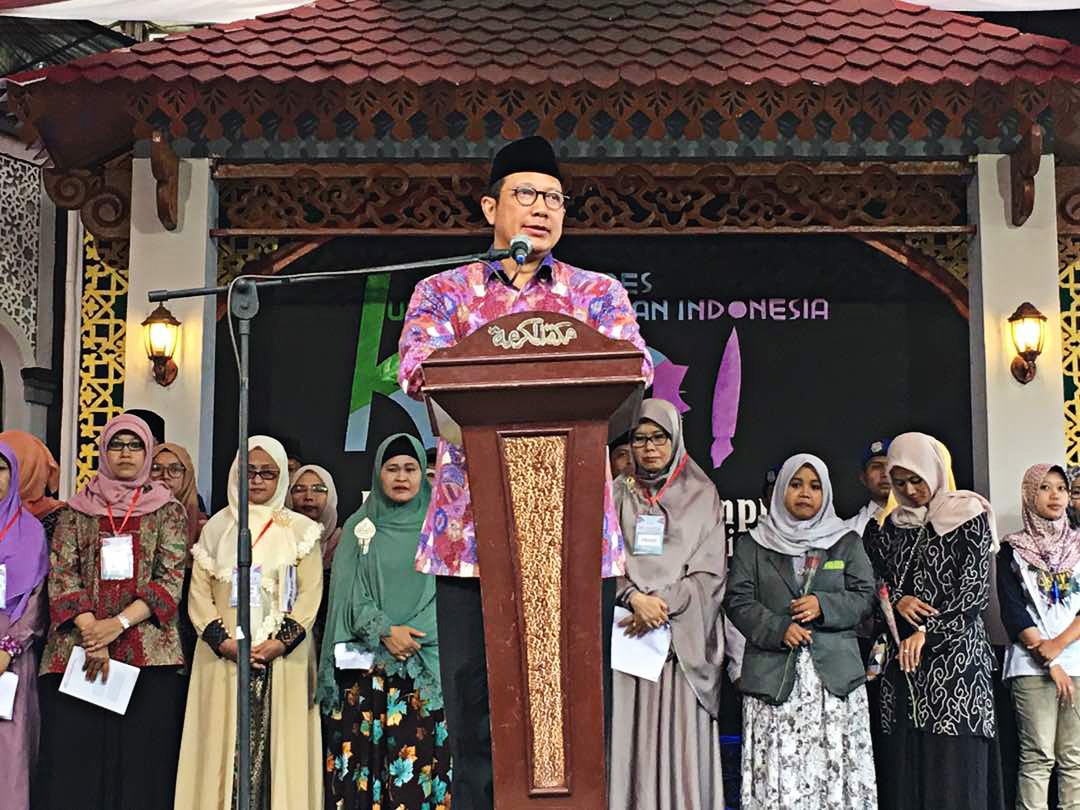Popular Reads
Top Results
Can't find what you're looking for?
View all search resultsPopular Reads
Top Results
Can't find what you're looking for?
View all search resultsAvoiding child marriage ‘mandatory’
An 11-year-old girl was raped years ago by her own grandfather, who also played the role of muezzin (caller to prayer) in his community.
Change text size
Gift Premium Articles
to Anyone
An 11-year-old girl was raped years ago by her own grandfather, who also played the role of muezzin (caller to prayer) in his community.
When the girl became pregnant, her grandmother approached a midwife for an abortion. The midwife refused, fearing she would commit a sin. The grandmother then sought the help of a local female cleric in Bondowoso, East Java, Ruqoyyah, who accompanied them on another visit to the midwife.
An abortion was conducted after Ruqoyyah convinced the midwife that an abortion of a pregnancy caused by rape was not sinful; “besides the girl could not marry her grandfather, as incest, being haram, is a sin.”
Ruqoyyah added that the girl’s future should be considered.
Child marriage remains rampant in Bondowoso, second only to Madura in East Java, said Ruqoyyah — who was forced to marry at the age of 14, and who also survived domestic violence in her second marriage.
After educating the community through prayer groups and other functions, “Alhamdullillah [Thank God]”, she said, child marriage had decreased and fewer parents were taking their daughters out of school to marry them off once they were considered physically mature.
The first Indonesian Women’s Ulema Congress ruled on Thursday that “avoiding child marriage is mandatory”, to cheers and applause at the Kebon Jambu Al Islamy Islamic boarding school in Babakan Ciwaringin, Cirebon.
In the first of three rulings, read out by scholar Habib Djunaidi of Banjarmasin, South Kalimantan, the congress urged the increase of girls’ legal marrying age from 16 to 18.
As the Constitutional Court has thwarted a judicial review attempt to change the minimum marrying age for girls in the 1974 Marriage Law,
citing fears of sin, among others, Religious Affairs Minister Lukman Hakim Saifuddin told the audience he would immediately convey the recommendation to Women’s Empowerment and Child Protection Minister Yohanna Yembise so the government could draft an amendment to the law.
Habib read out the reasons for the ruling, “First, religion obliges all people to avoid and fight every factor that can cause mudharat [harm] and child marriage contains many mudharat such as maternal death.”
“Second, prevention [of child marriage] is the responsibility of parents, educators, society and the state, central and local government.”
“Third, victims of child marriage must receive formal education and health care just like any other child, as well as protection from all kinds of violence and discrimination. Their parents are obliged to continue to take care of them.”
The ruling added that schools must continue to ensure victims of child marriage could continue their studies, “including when a girl becomes pregnant.”
During Wednesday’s discussion group on child marriage, researcher Mukti Ali raised the issue of using Islamic sources, including Quranic verses, to justify child marriage. This is implied in Surah Al Thalaq, despite Surah Al Rum mentioning Allah’s creation of couples “so that you can feel blissful toward him/her”. The aim of blissful families cannot be achieved through child marriage, Ruqqoyah, said.
The congress results were far too late for one deaf girl who was raped and forced to marry her rapist. This was the family’s decision, a participant said, as her voice cracked. “So I had to prepare her [dress and do her makeup], but I feel I’ve sinned.”
The second congress ruling was also groundbreaking: that sexual violence is haram within and outside a marriage. The third was that development that caused damage to the environment was also haram.
The congress rulings, while non-binding, are to serve as a reference for matters considered urgent by over 1,000 congress participants.










